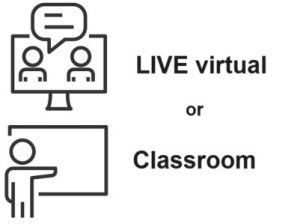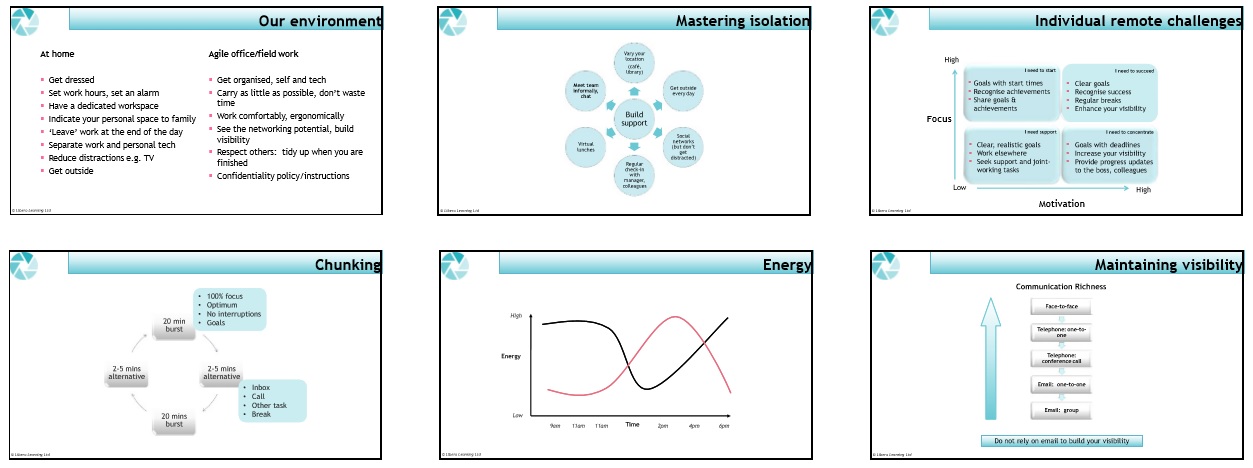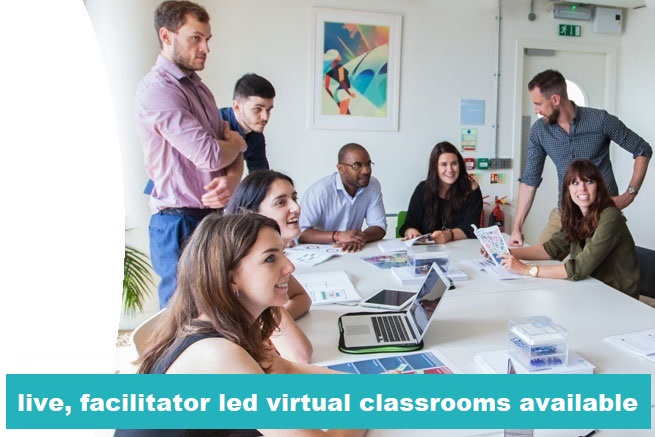Teamcraft
A day of evidence-backed leadership training
Why do some teams outperform others?
… and what can you do as a leader to ensure yours is happy, efficient and doing its best work?
Over the course of a single day (or two virtual sessions), Teamcraft distills the latest and best research into a set of practical tools managers can use to make an instant impact on the performance of their teams.
They will explore the research-backed concept of ‘collective intelligence’ – a way of thinking about what makes some teams perform better than others – and will learn about the levers they can pull to boost this vital characteristic.
They will also learn how to shape a culture of ‘psychological safety’ that fosters engagement and wellbeing, as well as ways to improve collaboration processes and to harness the benefits of diversity in their teams.
Teamcraft offers an energising and pragmatic dive into the latest thinking on team leadership. It can be adapted to your delegates’ needs and delivered at your offices or live online as virtual training.


Research-backed syllabus
The content of the Teamcraft programme draws on high quality business school research. Our in-house team sifts the latest journals to give you the best possible picture of current thinking, ensuring that all of the key ideas presented during the training are evidence-backed.
For those who want to dig deeper into the topics covered during the course, we provide references, links and book recommendations to explore after the course is complete.
Key ideas

Collective intelligence
CI is the group equivalent of individual IQ. Teams with high CI outperform others on a range of tasks, from ideation to decision-making. Boosting CI is a key part of a team leader's role.

Psychological safety
Creating an environment in which members feel supported, confident and respected is essential to long-term increases in team performance, reducing attrition and maintaining engagement.

Social perceptiveness
Emotionally intelligent leadership is a learnable skill, and there are many tools, techniques and processes that you can use to help you get the best from those you manage.

Cognitive diversity
Workplace teams often encompass a variety of minds, personalities and ways of thinking about and seeing the world. Ensuring every member feels accepted and understood is key to the team achieving its potential.

Skills congruence
One of the most powerful ways of boosting a team's collective intelligence is to understand the skills of its members, and to find ways to collaborate that play to these strengths.

Collaboration processes
Some of the simplest levers to pull to improve team performance are about putting in place processes to facilitate better meetings, communication, direction and collaboration.
Our clients include:

Course content
Typical programme content for a one-day classroom delivery or two module virtual course is outlined below.
All courses are adapted to the needs of your group and organisation.
INTRODUCTION
The art and science of teamcraft: what’s the evidence?
- What is “collective intelligence”
- Research on the relationship between collective intelligence and team effectiveness
- Factors that contribute to collective intelligence and team performance
PART 1
Social perceptiveness and emotional intelligence
- What is “social perceptiveness”?
- How high and low emotional intelligence members impact how a group or team functions
- Tools for building self-awareness, empathy and emotional intelligence
- Recognising and managing emotions under pressure
PART 2
Psychological safety
- What is “psychological safety”?
- The benefits of psychological safety to team productivity
- 10 practical ways to build psychological safety in your team
- Building a safe and constructive environment in which to disagree
- How to facilitate healthy, productive disagreement in teams and in meetings
- Identifying ways to role model psychological safety as leaders
PART 3
Cognitive and neuro diversity
- What is “cognitive diversity”?: “inclusion of people with different beliefs, viewpoints, approaches”
- The competitive advantages of cognitive diversity in teams and organisations
- What is “neurodiversity”?: “inclusion of people with different brain function, ways of thinking and interacting with others”
- Understanding and adapting to support and build relationships with neurodiverse colleagues
PART 4
Skills congruence and collaboration processes
- What is “skills congruence” and why it is so important to team performance?
- Understanding your own skills and strengths (online assessment completed before the session)
- Identifying and developing your team members’ strengths
- Creating effective processes to achieve goals and capitalise on the team’s strengths profile
- Agreeing objectives and goals for teams and individuals
- Reviewing and encouraging progress during 1:1s
- Holding effective, inclusive meetings
CONCLUSION
Putting it into practice
- Creating individual action plans based on key takeaways from the course
- Conclusion and close
Additional learning support
As well as the training itself, delegates’ learning is supported by access to an online portal that includes additional curated resources such as videos, articles, book suggestions and recaps that help cement and build on their training.
We also offer individual email coaching support to anyone who needs help applying their learning for up to six months after completing the programme. Optional follow-up training sessions can also be organised to maintain momentum.

Our trainers
Our trainers are expert practitioners and consultants, with many years of experience delivering impactful training across a broad range of organisations and sectors. All are experienced in virtual as well as classroom delivery.

Sally Prescott
Sally has years of experience supporting organisations to deliver exceptional service, leadership and communications. She is a qualified coach and is licensed to deliver a wide range of training programmes. Whether through classroom or virtual training, Sally's energy, knowledge and experience have a lasting impact on those she teaches.

Kate Jennings
A highly experienced trainer, coach and consultant with a commercial background in product development, Kate has worked with clients in the UK, Europe and US to develop and deliver classroom and virtual professional skills programmes.

Jo White
Jo is an experienced business leader, trainer and coach with a proven track record of forming, growing and developing high-performing teams. With a focus on effective communication, collaboration and emotional intelligence Jo equips teams with the skills they need to be fulfilled and effective.
Classroom or virtual delivery
The Teamcraft programme can be delivered as classroom or virtual training. In either case, the sessions are delivered by an experienced tutor, with plenty of interaction, discussion and practical exercises.
Classroom courses last a full day to allow time for practical elements and discussion. Virtual programmes are usually split into two modules, each of around two hours in length, and can be delivered via any of the popular virtual meeting platforms.

If you have a group of managers who could benefit from the Teamcraft programme, we can work with you to adapt the content to your needs and can deliver the programme to a schedule that suits you.
Participants can join a virtual training session from the office or from home, and can take part in their own teams or departments, or with a mixture of colleagues from across your organisation. Classroom deliveries can be arranged at a venue of your choice.
Please contact us to find out more and to obtain a quote.
